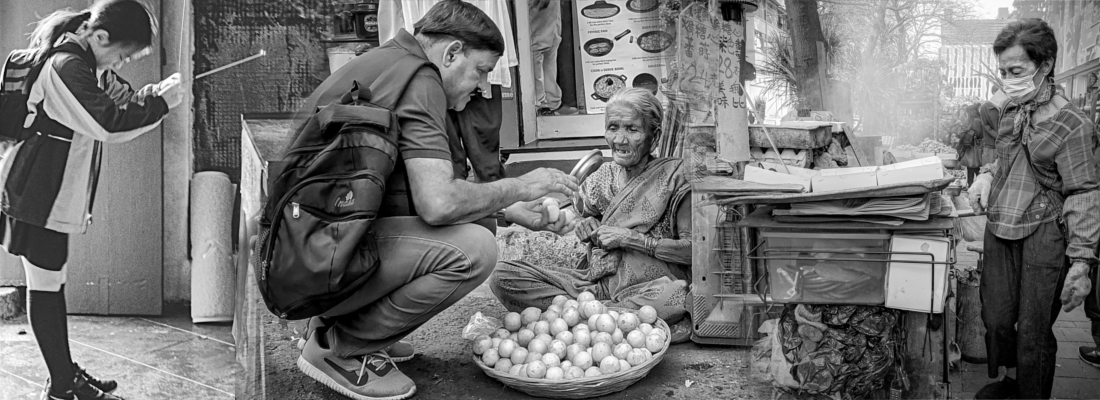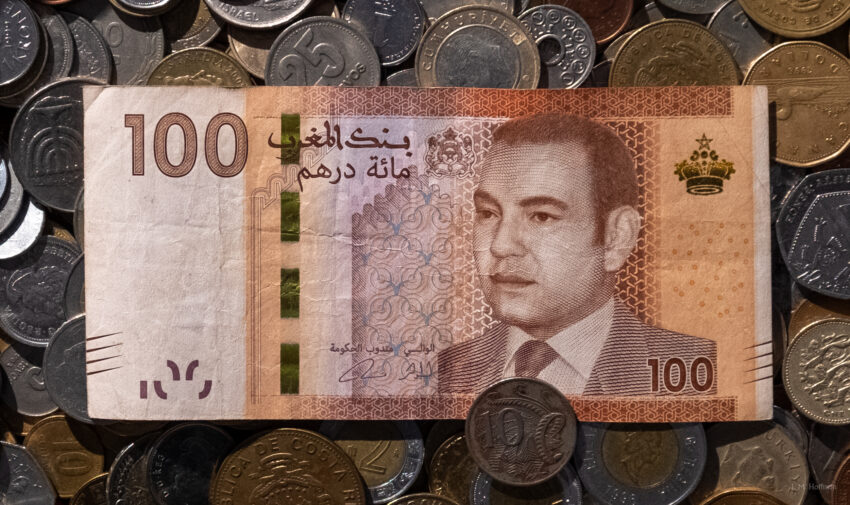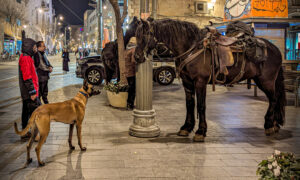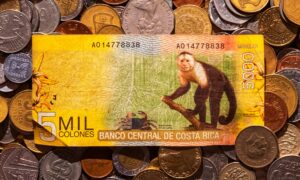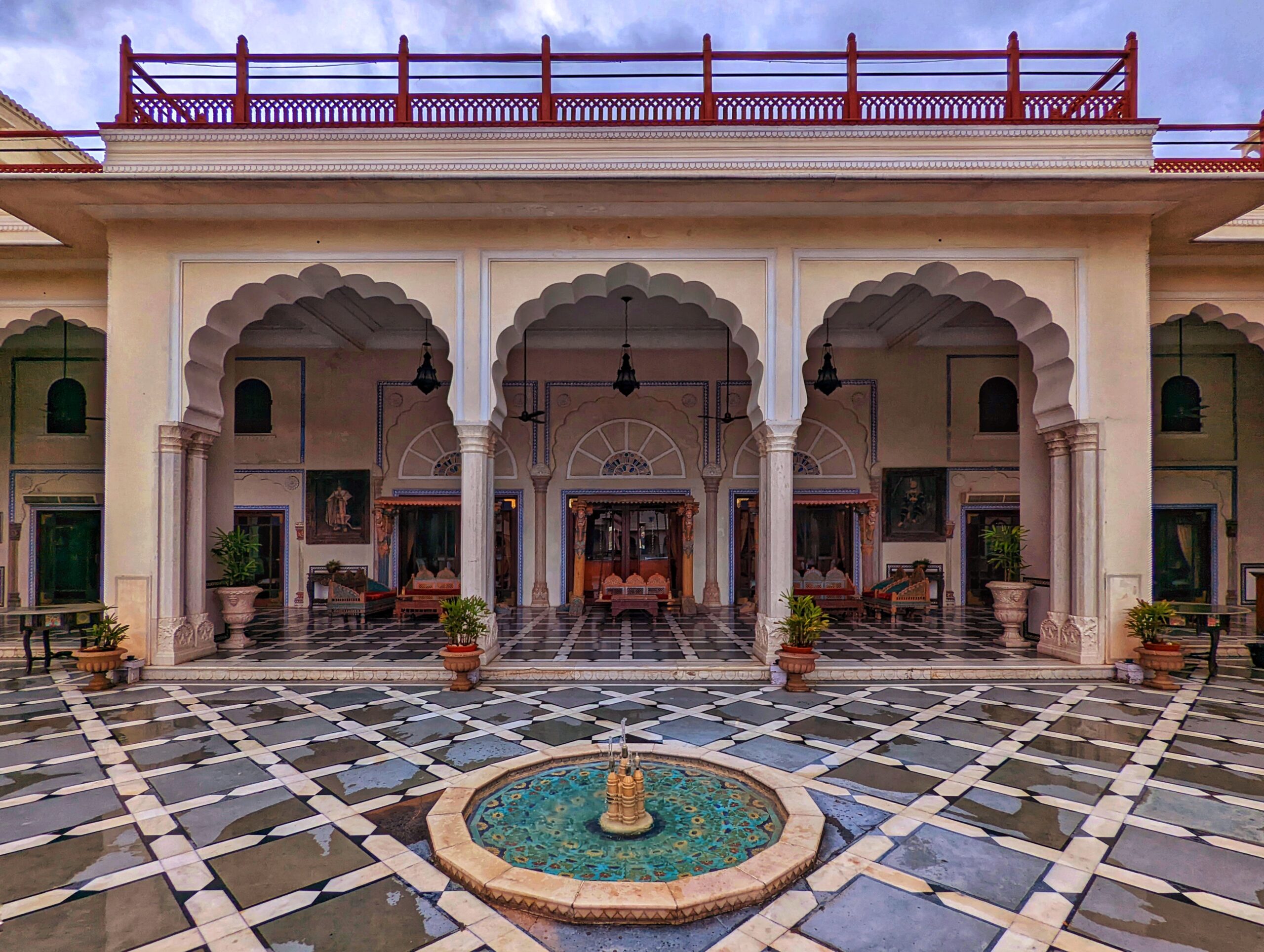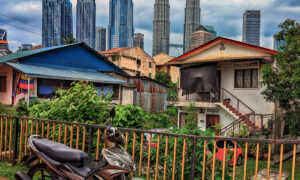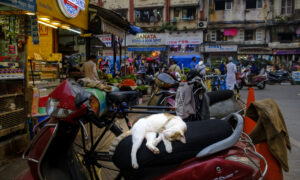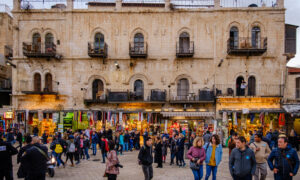This 100-dirham note from Morocco, worth about US$10, is identical to one that I handed to a police officer in a cemetery in the historic town of Sefrou. But that isn’t the surprising part.
We’d already been given an unexplained police escort upon entering Sefrou, a small Berber town on the edge of the Mid Atlas Mountains. Unlike at dozens of other police checkpoints in the country (whose purpose remains a mystery to me), in Sefrou the police insisted on accompanying us.
So there we were, two ordinary tourists with a guide and driver, escorted by two policemen on motorcycles. A third officer was waiting for us at the historic cemetery. That was odd, but still not the surprising part.
The cemetery itself turned out to be a disappointment. It was a restoration, more of a museum than an actual historical record. So our visit was brief. As we were leaving, a man approached me and told me in French — and in earshot of the third policeman — that he was the groundskeeper.
I nodded.
“I’m the groundskeeper,” he said again.
“Very nice,” I replied.
“I’m the groundskeeper,” he told me a third time.
Well, you don’t have to tell me four times. I finally caught on. And I handed the man 100 dirhams, a tip of about ten US dollars. Morocco is like that. People get tipped for services small or large, real or imagined. That’s just how the country works. But that’s still not the surprising part.
It was after I tipped the groundskeeper that the third policeman — whose function, like the first two, was still unclear — asked me, “Don’t you have anything for me?”
Well. It’s true that I’d never bribed anyone before, but I knew enough to know the answer when a police officer asks if you have money for him: Yes. So I said, “of course I do, my friend!” I patted him on the shoulder to underscore our new friendship. (Was that too much?) And with a suave handshake like I’ve seen in movies, I slipped the guy a hundred. Even that isn’t the surprising part, though.
Afterward, I mentioned the incident to our guide, who was outraged. “A policeman should never ask you for money,” he said passionately. What came next is the surprising part:
“He should ask me for money,” our guide explained. “It doesn’t look good for police to ask tourists for money. Of course I give him money, because we work together all the time. But he shouldn’t ask you.”
So there it is.
The problem wasn’t that a police officer asked for money. The problem was that he breached local protocol and asked the wrong person for money.
The 100-dirham bill that I used features His Majesty Mohammed VI, King of Morocco, just like the 200-, 50-, and 20-dirham notes do. You can’t bribe a cop in Morocco without the king being at least tangentially involved.
The notes were all reprinted in 2012.
The previous notes starred both the king and his late father, King Hassan II. The newer art followed the Moroccan version of the Arab Spring, in the aftermath of which King Mohamed VI gave his country a new constitution, passed by public referendum in 2011. The 2012 bills may have been a way of signaling a break with the past.
Despite the constitution, the king retains far more power than, say, the Queen of England. The king, at least in theory, can dismiss any minister, dissolve Parliament, call for new elections, or simply rule by fiat. And in case none of those work, the king can also suspend the constitution. In principle Morocco is closer to an absolute monarchy than the typical Western constitutional monarchy. But in practice, I was repeatedly told, the beloved king serves as a much-needed check on democracy, making sure that Morocco remains stable and productive. The people have a voice but the king has a veto.
As if emphasizing the people’s unsuitability to modern ideas, the flip side of the 100-dirham note showcases the desert and its nomadic people:
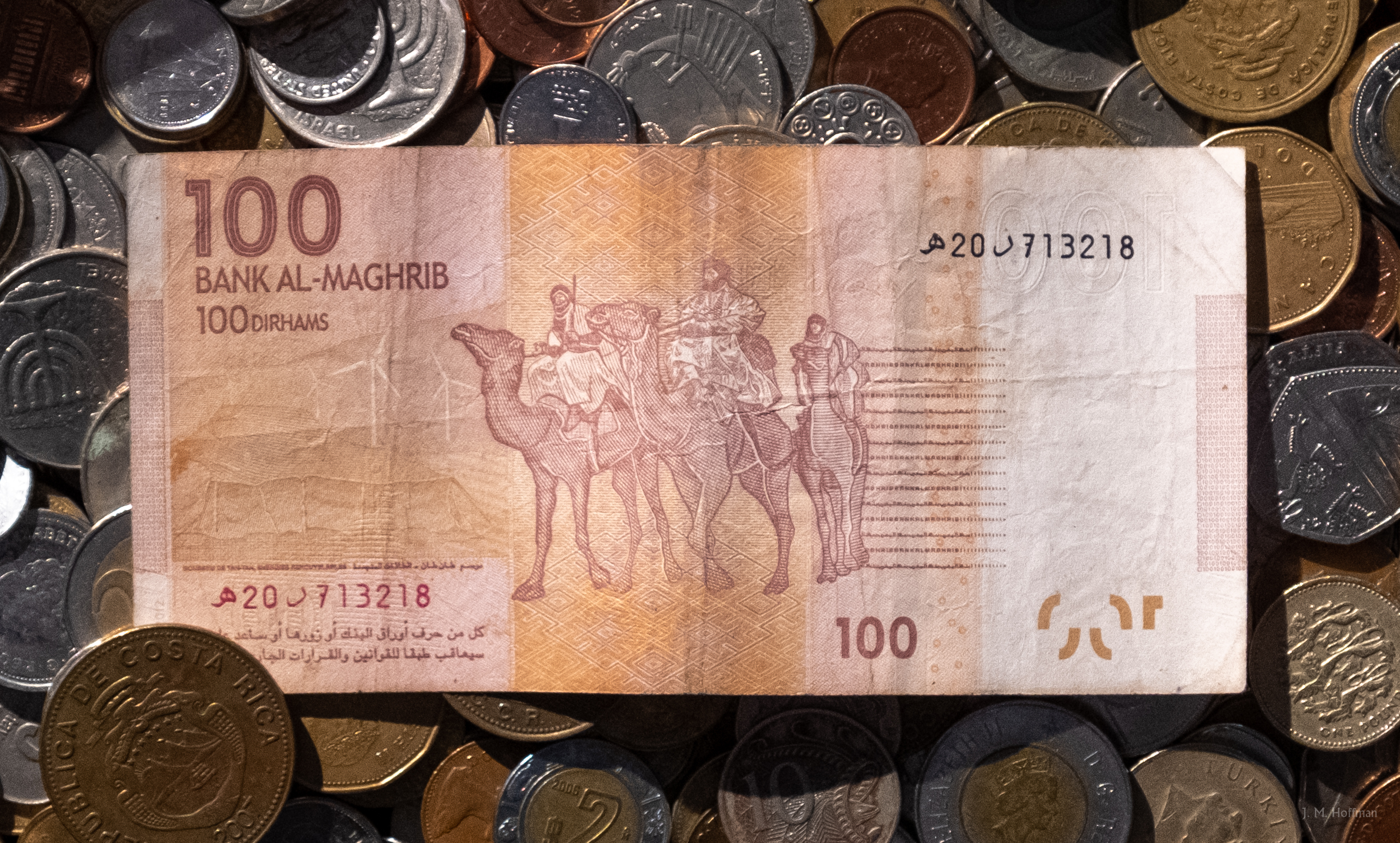
Most of Morocco is desert (the exact percentage depending on the final resolution of what some people call “the western Sahara” and others call “Morocco” and others yet call “Algeria”). And despite its modern cities and apparently forward-looking and open stance, Morocco is home to a significant population that still lives much the way they did hundreds of years ago.
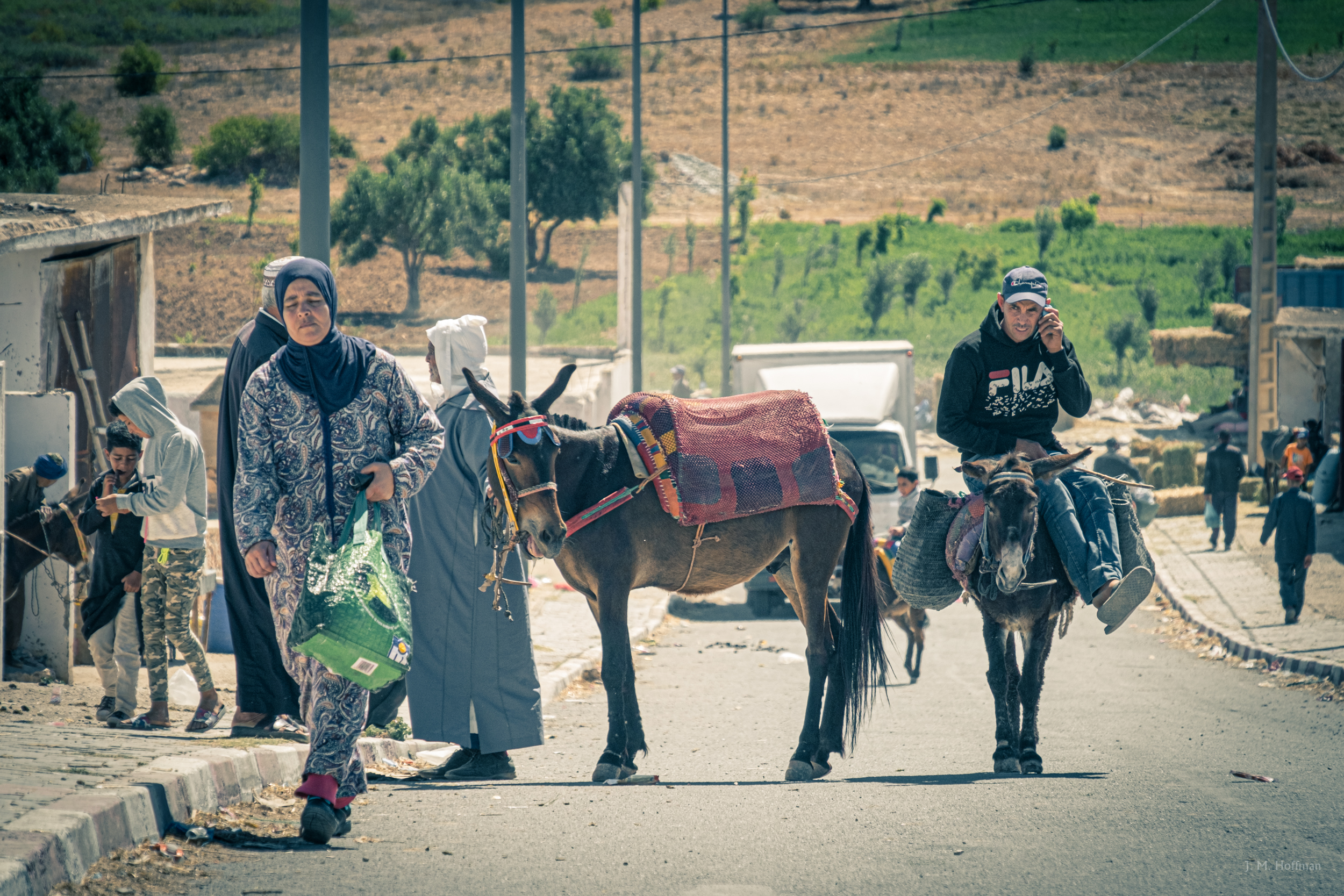
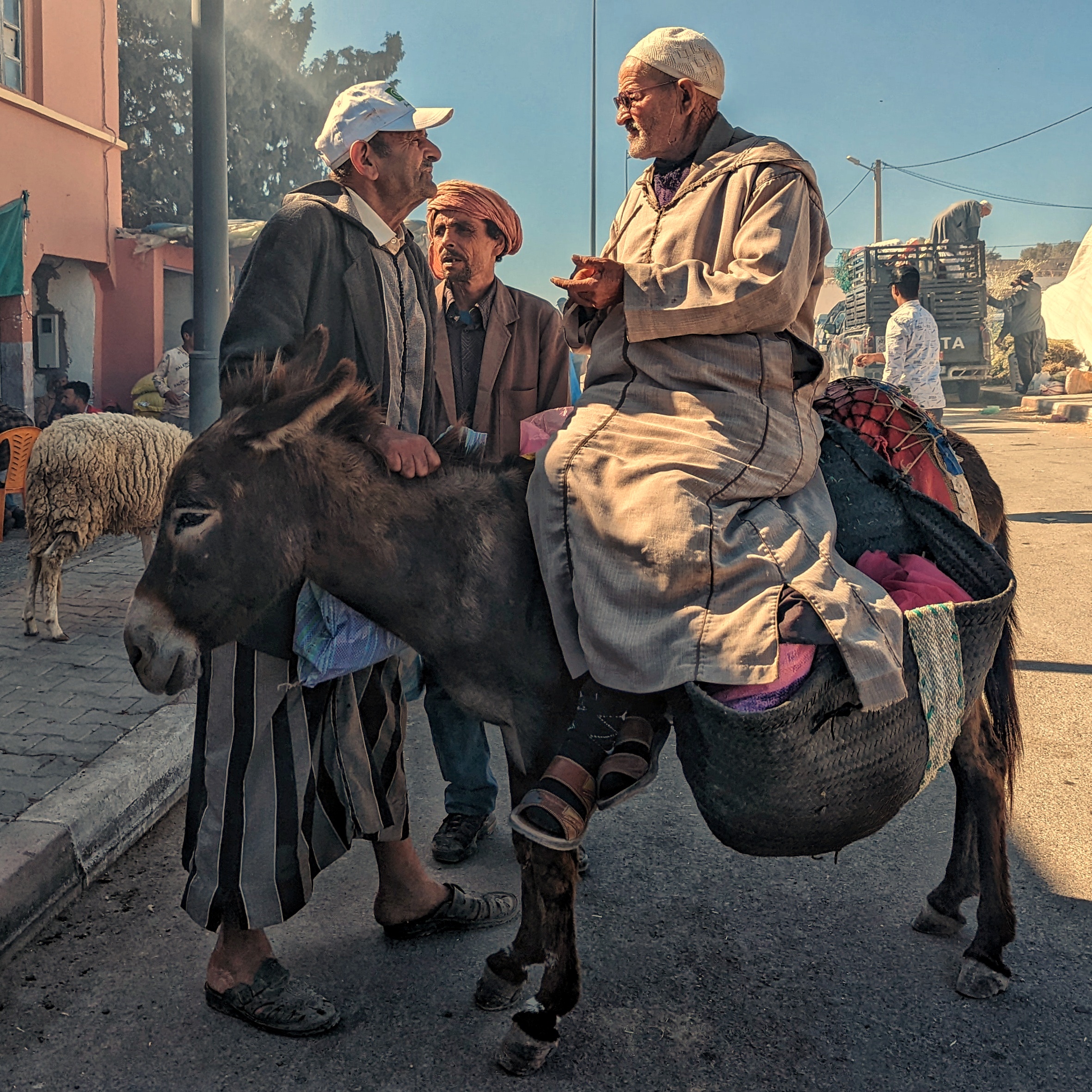
Democracy is practically a religion in the West, particularly in the current and former British Empire. So my instinct as a New Yorker is to reject any authoritarian leader, just as my instinct is to condemn police who take money. But what do I know? The system seems to work in Morocco, even with its bribes — which the locals call tips, whether given to doormen or police. And an honest look at some other democracies overseas — Iraq, now, and for that matter Gaza — perhaps calls into question the universal merit of letting the people rule themselves.
Maybe Morocco is better off for its powerful king.
